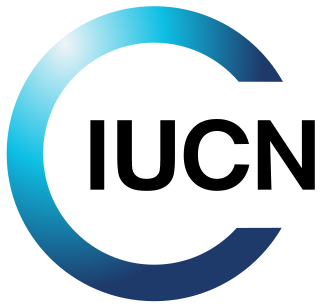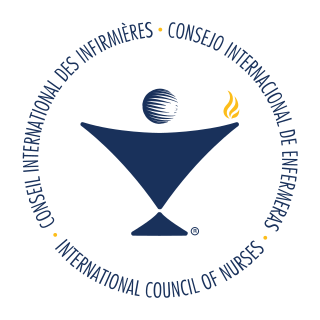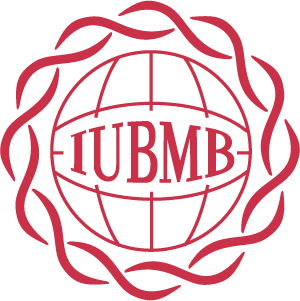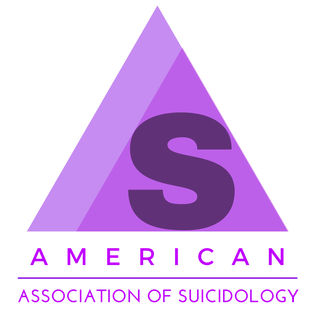Related Research Articles

The International Union for Conservation of Nature is an international organization working in the field of nature conservation and sustainable use of natural resources. It is involved in data gathering and analysis, research, field projects, advocacy, and education. IUCN's mission is to "influence, encourage and assist societies throughout the world to conserve nature and to ensure that any use of natural resources is equitable and ecologically sustainable".

The American Society for Microbiology (ASM), originally the Society of American Bacteriologists, is a professional organization for scientists who study viruses, bacteria, fungi, algae, and protozoa as well as other aspects of microbiology. It was founded in 1899. The Society publishes a variety of scientific journals, textbooks, and other educational materials related to microbiology and infectious diseases. ASM organizes annual meetings, as well as workshops and professional development opportunities for its members.

The American Academy of Family Physicians (AAFP) was founded in 1947 to promote and maintain high quality standards for family doctors who are providing continuing comprehensive health care to the public. It is one of the largest medical organizations in the United States, with 136,700 members in 50 states, D.C., Puerto Rico, the Virgin Islands, and Guam, as well as internationally. The AAFP was instrumental in establishing family medicine - a derivative of classical general practice - as medicine's 20th primary specialty. The AMA's Council on Medical Education and the independent American Board of Medical Specialties granted approval to a certifying board in family medicine on February 8, 1969. The AAFP is headquartered in Leawood, Kansas.

The African Academy of Sciences (AAS) is a non-aligned, non-political, not-for-profit pan-African organization. The AAS's vision is to see transformed lives on the African continent through science. Moses Alobo was appointed as Head of the African Academy of Sciences response to COVID-19.

The International Council of Nurses (ICN) is a federation of more than 130 national nurses associations. It was founded in 1899 and was the first international organization for health care professionals. It is headquartered in Geneva, Switzerland.

The International Union of Biochemistry and Molecular Biology (IUBMB) is an international non-governmental organisation concerned with biochemistry and molecular biology. Formed in 1955 as the International Union of Biochemistry (IUB), the union has presently 79 member countries and regions. The Union is devoted to promoting research and education in biochemistry and molecular biology throughout the world and gives particular attention to areas where the subject is still in its early development

The Elton John AIDS Foundation (EJAF) is a nonprofit organization, established by rock musician Sir Elton John – in 1992 in the United States and 1993 in the United Kingdom – to support innovative HIV prevention, education programs, direct care and support services to people living with HIV.
The International Union of Food Science and Technology (IUFoST) is the global scientific organization and voice for food science and technology representing more than 300,000 food scientists, engineers and technologists through its work in more than 100 countries. It is a voluntary, non-profit association of national food science organizations. IUFoST is the only elected scientific representative of Food Science and Technology in the International Science Council (ISC), elected by its peers across scientific disciplines. It is the only global representative of food science and technology to notable organizations such as the World Health Organization (WHO), Food and Agriculture Organization (FAO) of the United Nations, United Nations Development Programme and (UNDP), CODEX Alimentarius.

The Stroke Association is a charity in the United Kingdom. It works to prevent stroke, and to support everyone touched by stroke, fund research, and campaign for the rights of stroke survivors of all ages.

The International Water Association (IWA) is a non-profit organization and knowledge hub for the water sector, with over 60 years' experience connecting water professionals worldwide to find solutions to the world's water challenges. As a network of water professionals and companies, IWA has a membership comprising utilities and leading companies in the fields of water services, infrastructure engineering and consulting as well as more than 10,000 individuals. IWA works across a wide range of issues covering the full water cycle, with four programmes that work towards achieving the Sustainable Development Goals and addressing the threat to sustainable water supplies posed by climate change. The IWA is headquartered in London, UK, with a global secretariat based in Nanjing, China, and a regional office in Chennai, India.
Neuroepidemiology is a branch of epidemiology involving the study of neurological disease distribution and determinants of frequency in human populations. The term was first introduced by Dr. Len Kurland, Dr. Milton Alter and Dr. John F. Kurtzke in 1967. Traditionally, neuroepidemiology has been perceived for a long time as a science of incidence, prevalence, risk factors, natural history and prognosis of neurological disorders. However, this is only one part of neuroepidemiology, called non-experimental neuroepidemiology. The other integral, but commonly forgotten, part of neuroepidemiology is experimental neuroepidemiology, which is research based on clinical trials of effectiveness or efficacy of various interventions in neurological disorders.

The International Pharmaceutical Students' Federation (IPSF) is a non-governmental, non-political and non-religious organisation that represents pharmaceutical students, pharmacy students and recent graduates from all over the world. It was founded in 1949 and it is the oldest faculty-based student organisation. IPSF represents over 500,000 individuals in more than 100 countries with 127 different representative pharmacy student member organisations.

The American Association of Suicidology (AAS) is a 501(c)(3) nonprofit organization which advocates for suicide prevention. It was established in 1968 by Edwin S. Shneidman, who has been called "a pioneer in suicide prevention." Its official journal is Suicide and Life-Threatening Behavior, published six times a year by Wiley-Blackwell.

The International Council on Archives is an international non-governmental organization which exists to promote international cooperation for archives and archivists. It was set up in 1948, with Charles Samaran, the then director of the Archives nationales de France, as chairman, and membership is open to national and international organisations, professional groups and individuals. In 2015, it grouped together about 1400 institutional members in 199 countries and territories. Its mission is to promote the conservation, development and use of the world's archives.
World Stroke Day is observed on October 29 to underscore the serious nature and high rates of stroke, raise awareness of the prevention and treatment of the condition, and ensure better care and support for survivors. On this day, organizations around the world have facilitated events emphasizing education, testing, and initiatives to improve the damaging effects of stroke worldwide. The annual event was started in 2006 by the World Stroke Organization (WSO) and the WSO declared stroke a public health emergency in 2010. The WSO now has an ongoing campaign that serves as a year-round interface for advocacy, policy, and outreach to support strides and continue progress made on World Stroke Day.
The International Union of Psychological Science, abbreviated IUPsyS or the Union, is the global umbrella organization for psychology.
AcademyHealth is a nonpartisan, nonprofit professional organization dedicated to advancing the fields of health services research and health policy. It is a professional organization for health services researchers, health policy analysts, and health practitioners, and it is a nonpartisan source for health research and policy. The organization was founded in 2000, in a merger between the Alpha Center and the Association for Health Services Research (AHSR). In 2008, the organization had approximately 4000 health services researcher members.
The AF Association (AF–A) is an international charity that provides information and support for patients suspected of having, or diagnosed with atrial fibrillation (AF); the most common heart rhythm disorder. The AF Association also works to campaign for greater awareness of AF amongst the general public and increase education for healthcare professionals and service providers involved in the management of AF.

YAI, previously known as Young Adult Institute, is an organization serving people with Intellectual and developmental disabilities (IDD) in New York City. YAI launched as a pilot program at a small school in Brooklyn, New York, in February 1957. The pilot program was run by co-founders Bert MacLeech and Pearl Maze and served seven people with I/DD. Today, YAI has expanded to a team of over 4,000 employees and supports over 20,000 people in the I/DD community. YAI supports people with Autism, Down syndrome, and Cerebral palsy, among others.
Michael Brainin is an Austrian neurologist and emeritus professor at the Danube University Krems. He is widely known as a pioneer in stroke research and prevention as well as a leading figure in the development of stroke units. Brainin was president of the Austrian Stroke Society, the European Stroke Organisation and the World Stroke Organization.
References
- ↑ Archived January 22, 2011, at the Wayback Machine
- 1 2 "world-stroke.org". world-stroke.org. 3 February 2012. Retrieved 19 July 2012.
- ↑ "WSO Mission". World Stroke Organization.
- ↑ "(WSC)". World Stroke Campaign. 29 October 2011. Retrieved 19 July 2012.
- ↑ Inc., MULTILEARNING Group. "World Stroke Academy". world-stroke-academy.org. Retrieved 1 March 2016.
- ↑ "International Journal of Stroke - Journal Information". Wiley.com. Retrieved 19 July 2012.
- ↑ "International Journal of Stroke - Journal Information". Wiley.com. Retrieved 19 July 2012.